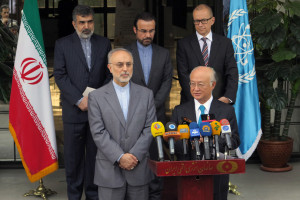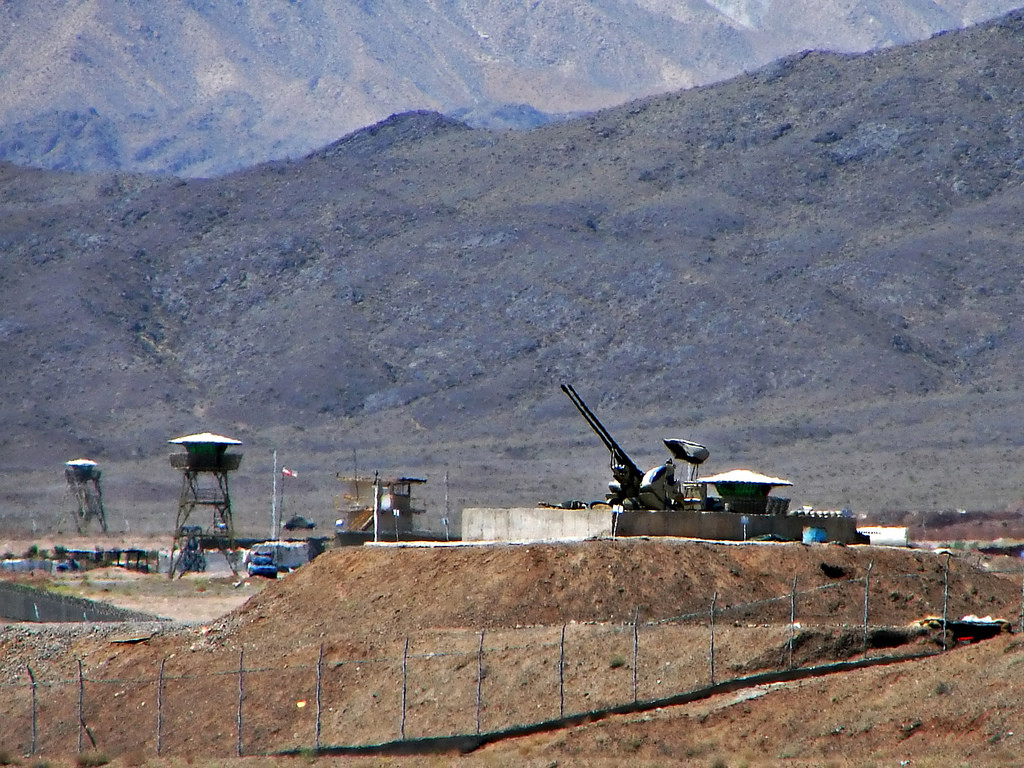

Dr. Ali Akbar Salehi, VP and Chairman, Atomic Energy Organization of Iran (L) with Yukiya Amano, director general, IAEA in Iran, Aug. 2014. (IAEA)
IAEA Director-General Yukiya Amano says Iran is not implementing protocols needed to determine if its nuclear program is for peaceful purposes only.
By: Lauren Calin, World Israel News
The P5+1 group of countries currently negotiating with Iran over its nuclear program is likely to condition the lifting of sanctions against Iran on verification from the International Atomic Energy Agency (IAEA) that no nuclear military research is being conducted.
However, Iran is not fully cooperating with IAEA inspections intended to determine whether its nuclear program is for peaceful or military purposes, according to IAEA Director-General Yukiya Amano. Amano indicated that Iran has not implemented the additional protocols, which give the IAEA authority to conduct surprise inspections.
“With respect to the clarification of issues with possible military dimensions, the progress is limited and this is the area where more … cooperation from Iran is needed,” Amano said at a conference for the Carnegie Endowment for International Peace. “We continue to verify the non-divergence of nuclear material declared by Iran, but we are still not in a position to conclude that all nuclear material in Iran is in peaceful purpose.”
Amano repeated his comments in an interview with PBS News Hour. “Iran signed the additional protocol, and Iran implemented this additional protocol for some time, but it is not implementing the additional protocol,” he said. “What is the advantage of the additional protocol? With the implementation of the additional protocol, we can have access to the site which is not declared, for example, or we can request a short notice of inspection to the country. These activities are very useful to detect undeclared activities.”
Furthermore, “Our information indicates that Iran engaged in activities relevant to the development of nuclear explosive devices. We do not draw conclusions. But we are requesting Iran to clarify these issues.”
Amano noted that Iran is otherwise cooperating with the inspectors. “As far as the implementation of the comprehensive safeguards agreement, we have some good cooperation with Iran,” he told the Carnegie Endowment. “We are also implementing the Joint Plan of Action, and we can also say the implementation is good.”
The issue of monitoring is believed to be one of the major gaps remaining in the nuclear negotiations between Iran and the P5+1. France in particular is concerned that the deal being drafted undoes the sanctions program too quickly without adequate verification that Iran is upholding its obligations to limit nuclear research and development.
The deadline for a framework agreement is March 31.

